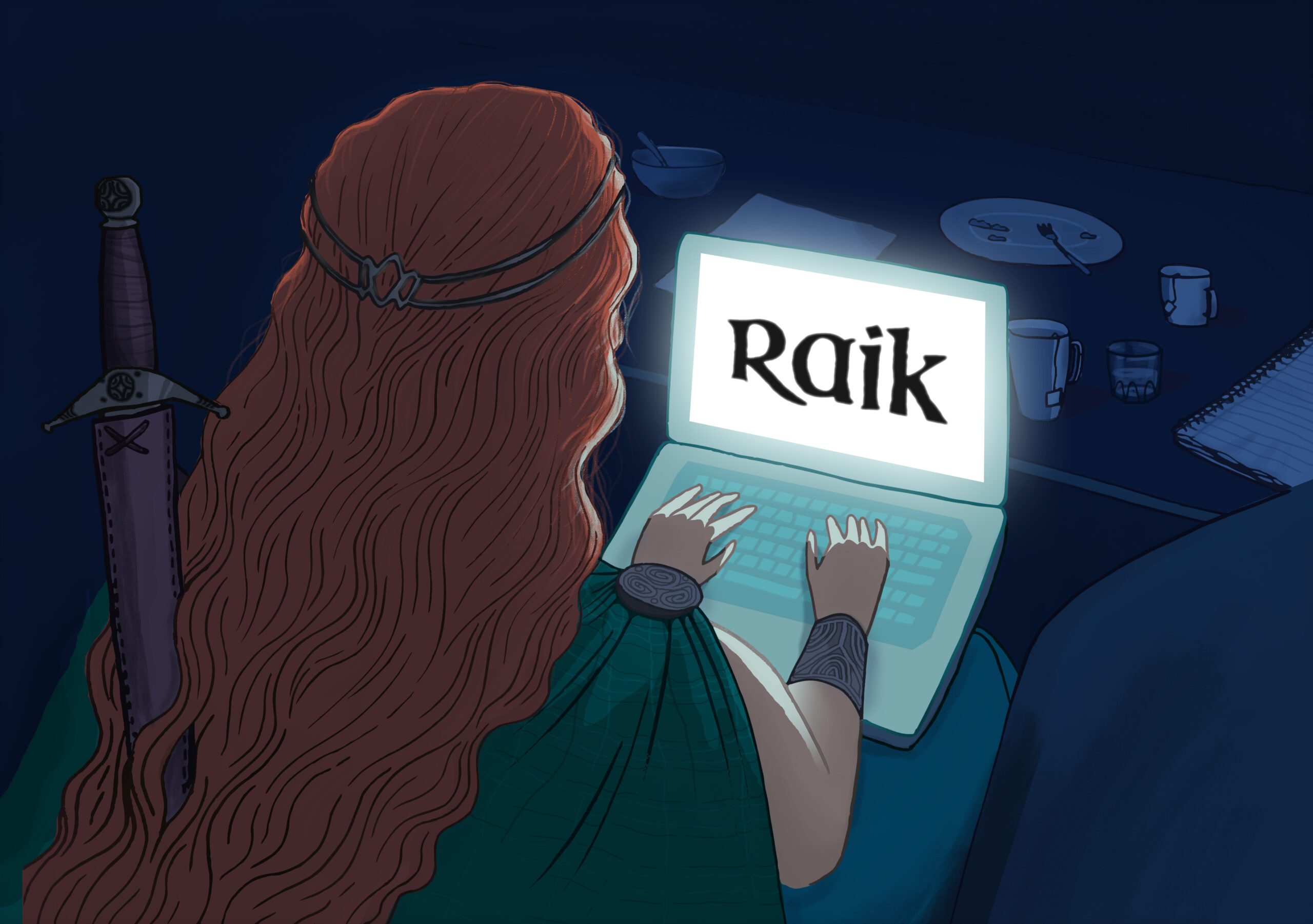This is the one hundred ninety-ninth entry in the Scratching That Itch series, wherein I randomly select and write about one of the 1741 games and game-related things included in the itch.io Bundle for Racial Justice and Equality. The Bundle raised $8,149,829.66 split evenly between the NAACP Legal Defense and Education Fund and Community Bail Fund, but don’t worry if you missed it. There are plenty of ways you can help support the vital cause of racial justice; try here for a start. Lastly, as always, you may click on images to view larger versions.
Our one hundred ninety-ninth random selection from the itch.io Bundle for Racial Justice and Equality is speaking to us in Scots. It’s Raik, by Harry Josephine Giles, and its tagline in the bundle reads:
a Scots fantasia about anxiety
This tagline is making me anxious.
Raik is made with Twine, a tool for creating interactive fiction that’s played in a web browser. Originally written for the 2014 Interactive Fiction Competition, the version in the bundle is an expanded edition that’s twice the size. We didn’t get a single Twine game in the first four years of Scratching That Itch, but this is now the third to pop up in the last two months! Back in July our 192nd random pick was POM SIMULATOR 9000, followed closely by our 197th random pick, The Three-Body Problem, in August.
Like those games, Raik is navigated by clicking highlighted words on the webpage, often just to prompt the next bit of text to appear, but sometimes to make choices that lead to different narrative branches. The main difference between Raik and our last two Twine games is that Raik is written in Scots. As an English speaker (American English, no less!), I was able to understand most of the Scots, but there is a link to a Scots dictionary to help with the occasional tricky word. Or, players can click a prompt to translate between Scots and English, at any time! Although it soon becomes clear that this translates more than one might expect.
This is the most fascinating thing about Raik. It is, essentially, two parallel narratives, structured in the same way, such that choices made in one also affect the other. As I played, I was constantly switching between English and Scots, and trying to decide what the best decision might be in each, and whether I could make them both. Usually, I could not. As the tagline says, Raik is about anxiety, which is something I have limited experience with. From Raik, I gathered that living with anxiety means rarely being able to make the choices you want, and not having things go the way you expect when you do. Simply existing is a struggle, mustering the willpower to accomplish simple tasks, balancing these with coping mechanisms that aren’t that effective. And constantly dealing with people who do not understand what you’re going through. It was certainly eye opening for me, and I hope that popular understanding of the condition improves, so those suffering from anxiety can get the help and treatment they need (Raik offers several resources for this after the story is finished).
I’m trying to avoid spoilers about how the English and Scots versions reinforce each other, so I’ll just ask you to trust me that it works really well. I also found some subtler themes entwined with the two languages used, hinting at Scottish history and how that has led to the experience of living in modern Scotland, where the Scots leid is dwindling and English is the dominant language. The use of Scots in Raik feels isolating, setting the protagonist apart from others — even those who support them — who speak English. No one understands what it’s like for you dealing with anxiety. No one speaks your language.
There are some parts that don’t quite work. Occasionally I’d make a choice in either English or Scots, then switch to see what had happened in the other, only to find a new scene that didn’t quite follow from the last. I was left wondering what choice I’d just made. It’s quite possible to miss bits of each narrative if players aren’t constantly swapping between Scots and English, especially for scenes which require clicking through several words before the final choice appears. These don’t translate easily, losing any in-scene progress when switching languages. Sometimes, there are clickable words that lead to brief asides, memories that give extra context for the scenes. But at a few points clicking one in Scots will lead to the English aside, and vice versa. Was this an intentional choice, to emphasize the connection between the narratives? Or just a bug?
It’s easy to forgive these foibles, though, because Raik is a fascinating thing to play, and an easy recommendation. It’s easily finished in a single sitting — Harry Josephine Giles estimates 25 minutes to play through once, and 90 minutes to see everything across multiple plays — and is an evocative exploration of anxiety. And Scottish stuff. Definitely give it a try if either of those things interest you. If you missed it in the bundle, Raik is sold for a minimum price of £3.00, including some separate notes files and a high resolution version of the cover art by Kitt Byrne (seen at the top of this post). Harry Josephine Giles also outlines a sliding scale for pricing based on what players can afford.
That’s 199 down, and only 1542 to go!





Leave a Reply